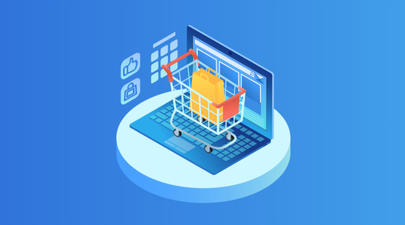As eCommerce continues to grow rapidly, businesses need a reliable and effective platform to manage their online stores. Two of the most popular options in the market are Shopify Plus and Magento Enterprise Cloud. While both platforms offer robust features, they differ significantly in terms of scalability, user-friendliness, security and reliability, extension & apps, support services, and pricing. As a business owner, choosing the right platform is crucial for ensuring success. In this article, we compare Shopify Plus vs Magento Enterprise Cloud in various aspects to help you decide which one is the best fit for your business. Scroll down and find what we cover for you.
Table of Contents
Overview of the two eCommerce platforms
Shopify Plus
Shopify Plus is a cloud-based eCommerce platform designed to meet the needs of high-growth and enterprise-level businesses. It is an extension of the popular Shopify platform, but with additional features and functionalities to support larger businesses with more complex requirements.

Some well-known retailers such as Heinz, Crate & Barrel, and Dressbarn partner with Shopify Plus to manage their eCommerce stores. Shopify Plus automatically handles issues such as website hosting, infrastructure, security patches, performance testing, and more.
Magento Enterprise Cloud
Magento Enterprise Cloud or Magento Commerce Cloud is a cloud-based eCommerce platform designed to meet the needs of medium to large enterprises. This Platform-as-a-Service (PaaS) offers advanced features and functionalities to support businesses with complex requirements, such as omnichannel selling, order management, and B2B commerce.
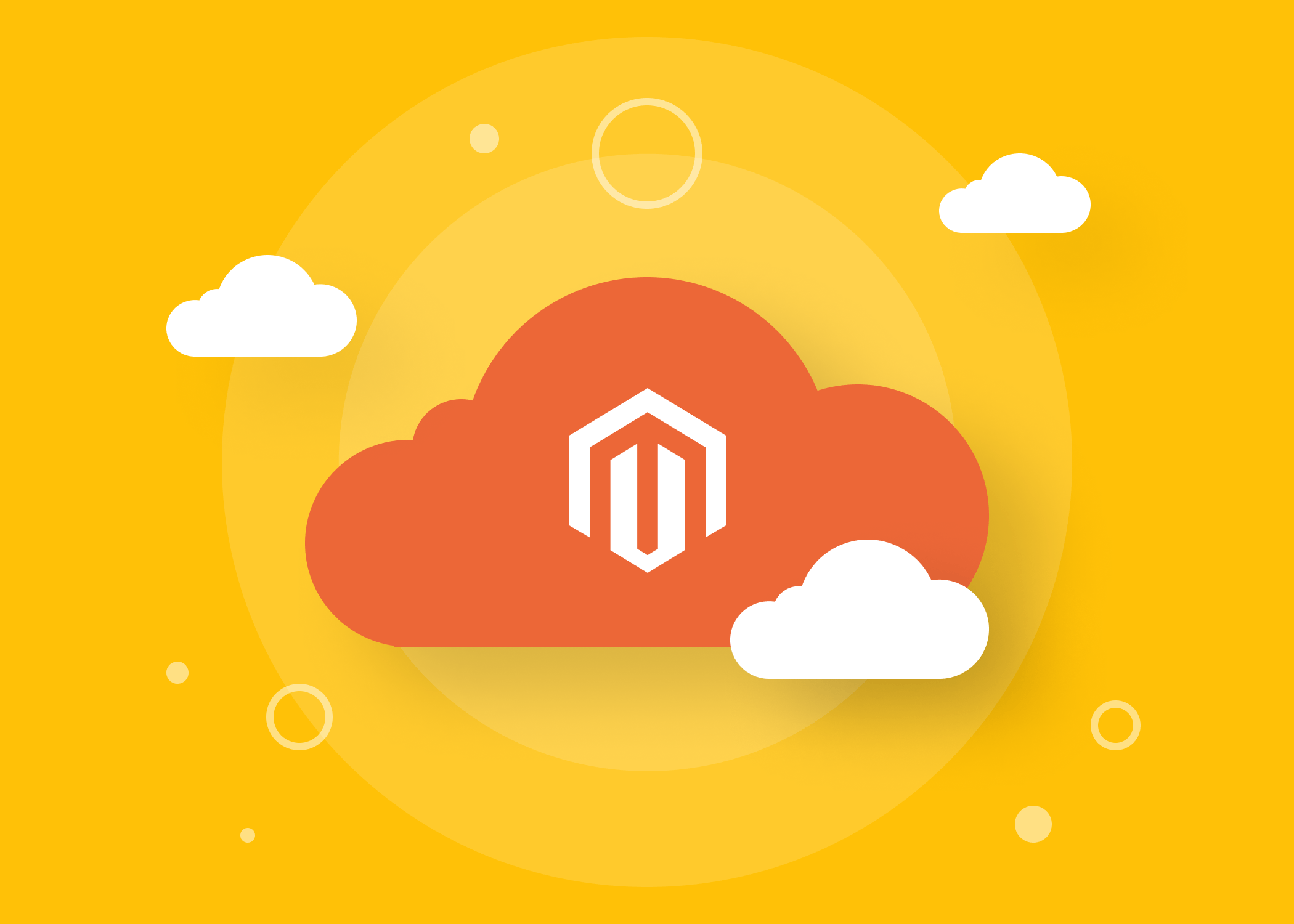
One of the key benefits of Magento Enterprise Cloud is its scalability and flexibility, which allows businesses to expand and customize their online stores as needed. This platform also provides a secure and reliable infrastructure, with automatic updates and monitoring to ensure maximum uptime and performance. Magento Commerce Cloud is a popular choice for businesses looking for a comprehensive and customizable eCommerce solution with strong support and security.
Comparison of Shopify Plus vs Magento Enterprise Cloud
Flexibility & Scalability
Shopify Plus
Shopify Plus is a highly flexible and scalable platform that caters to the needs of enterprise-level businesses. The SaaS provides a range of features and functionalities that allow businesses to tailor their online stores to meet their unique requirements.
- Flexibility
Shopify Plus offers a variety of customization options, including design, layout, and functionality, allowing businesses to create a unique and personalized shopping experience for their customers. The platform also supports multiple storefronts, languages, and currencies, enabling businesses to expand their reach globally and tailor their offerings to different markets.
- Scalability
Shopify Plus can handle high volumes of traffic and transactions, and businesses can easily add new features and functionalities as they grow. This edition also provides access to its API, allowing businesses to integrate with other tools and platforms and customize their online stores further.
Magento Enterprise Cloud
Magento Enterprise Cloud provides the best support and aid in the expansion of your company because it is an enterprise-level eCommerce solution.

- Flexibility
The platform also provides a high level of customization options and supports multiple storefronts, languages, and currencies as Shopify Plus offers. Moreover, as huge stores require a huge variety of product variations in various designs, sizes, colors, and styles, to meet that kind of demand, Magento Enterprise Cloud, unlike Shopify Plus, offers store owners an infinite number of product variants.
- Scalability
The platform handles high transactions and provides a range of integrations and APIs, allowing businesses to connect with other tools and platforms to streamline their operations and improve their customer experience. Therefore, with its extensive features and functionalities, businesses can customize their online stores to meet their unique requirements and scale their operations as they grow.
While Magento Enterprise Cloud may have an edge over Shopify Plus in terms of offering unlimited product variants, Shopify Plus still provides a more comprehensive range of built-in features and add-ons that support the growth and scalability of your business.
Ease of use and user-friendliness
When it comes to ease of use and user-friendliness between Shopify Plus vs Magento Enterprise Cloud, Shopify Plus is generally considered to be the more user-friendly platform.

Shopify Plus offers a more streamlined and intuitive interface, making it easier for users to navigate and manage their online stores. The SaaS has a user-friendly drag-and-drop editor, making it simple to customize the design and layout of your store without any technical expertise. Additionally, Shopify Plus has a more straightforward checkout process, which can help reduce cart abandonment rates and improve the overall user experience.
On the other hand, Magento Enterprise Cloud can be more complex and difficult to use for those without technical expertise. Its interface is more complex and may require more time and effort to master. It also requires a higher level of technical knowledge and experience to fully utilize its capabilities.
While both platforms have their strengths and weaknesses in terms of ease of use and user-friendliness, Shopify Plus is a more user-friendly platform compared to Magento Enterprise Cloud, which makes it attractive to merchants who prioritize their business over technical development.
Multi-store Management
Multi-store management is the ability to manage multiple online stores from a single platform.
Considering Shopify Plus, this platform allows businesses to manage multiple online stores from a single dashboard. Each store can have its own domain, theme, products, and customer data, but they share a single backend for managing orders, inventory, and other settings. The SaaS also allows businesses to manage multiple languages and currencies for each store, making it easy to expand into international markets.

Magento Commerce Cloud also allows businesses to manage multiple online stores from a single platform. Each store can have its own domain, theme, products, and customer data, and they can be managed from a single backend. The platform also allows businesses to manage multiple languages and currencies for each store and offers more advanced features such as flexible pricing rules and inventory management.
The two platforms offer robust multi-store management capabilities, but Magento Enterprise Cloud may be better suited for larger businesses with more complex needs, while Shopify Plus is a more user-friendly option for businesses looking for a simpler and more intuitive multi-store management solution.
Merchandising
- Shopify Plus
Regarding Shopify Plus, the platform provides certain means to support merchandising efforts. Users have the option to choose from default ordering options or rearrange products within their collections manually, which is superior to many other platforms. Additionally, it is possible to set a default order and subsequently switch to manual mode to rearrange items, which is a feature that pleases many users.
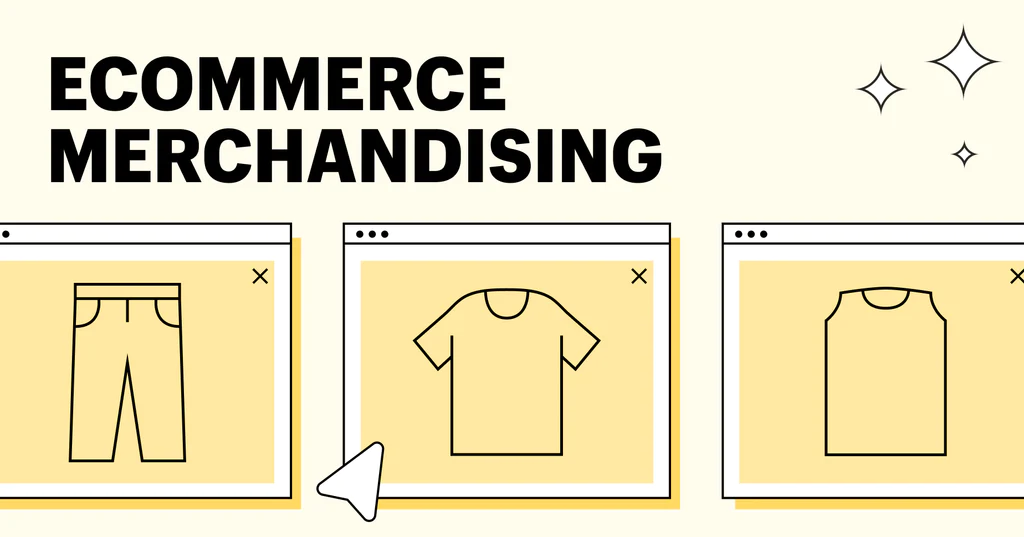
The options for base ordering of Shopify are:
- Best selling
- Product Name (A-Z and Z-A)
- Price (high-low and low-high)
- Newest and oldest
Through third-party applications and extensions, Shopify also provides visual merchandising. Shopify Plus is the preferred platform for fashion retailers and other merchants with straightforward product categories due to its ease of use in managing these categories. However, it should be noted that Shopify Plus does not support the use of multiple product types, though it is possible to use variants to accommodate configurable items. Despite this limitation, digital products can still be added to the store without any issues.
- Magento Enterprise Cloud
Magento Enterprise Cloud offers a range of merchandising features to help online merchants optimize their product offerings and drive sales. The platform offers seven different types of standard products including simple, configurable, bundled, downloadable, virtual, grouped, and gift card products. Merchants using Magento Commerce Cloud can take advantage of rules to set up related products they want to display, which reduces manual work, especially for those with large categories containing thousands of products. This is a unique feature of Magento Commerce Cloud that many merchants are utilizing.
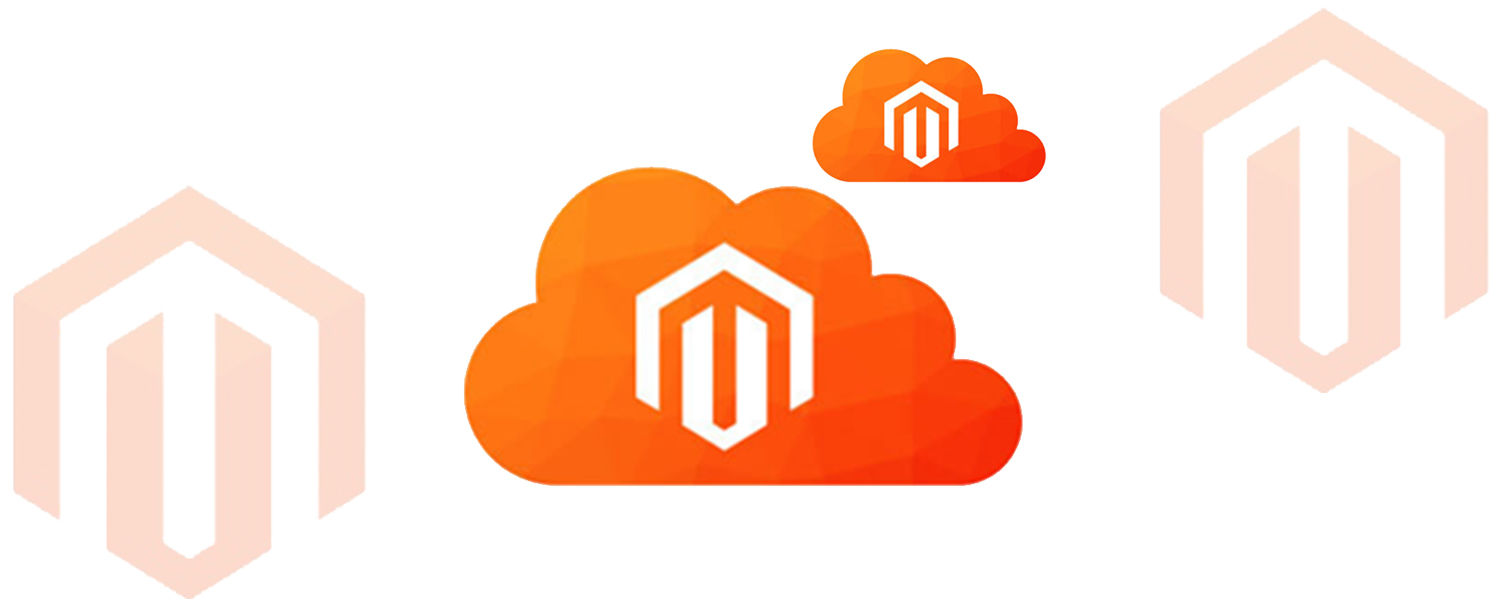
In addition, the platform also provides visual merchandising tools that allow merchants to position products and apply conditions to determine which products appear in category listings. These tools enable merchants to drag and drop or set position values to change the position of products.
Alternatively, merchants can also improve their merchandising performance by using third-party apps and extensions available on platforms such as Magento Marketplace and Shopify App Store.
Security & Reliability
Considering the security and reliability between Shopify Plus vs Magento Enterprise Cloud, both platforms offer strong measures to ensure the safety and stability of their platforms.
Shopify Plus has a robust security infrastructure, with SSL encryption and Level 1 PCI compliance to protect customer data and transactions. This eCommerce solution also provides regular security patches and updates to prevent any vulnerabilities. Additionally, the platform is hosted on a reliable cloud infrastructure, ensuring high uptime and availability for online stores.

Magento Enterprise Cloud also has a strong security system, with features such as two-factor authentication, data encryption, and security monitoring to protect against potential threats. As using a cloud-based hosting infrastructure, the platform also offers updated security to maintain a secure environment and ensures high performance, scalability, and reliability.
The two platforms prioritize security and reliability, and merchants can feel safe that their online stores are secure and stable. However, it’s worth noting that merchants using Magento Enterprise Cloud have more control over their security measures and can choose to implement additional security measures if needed.
Extensions & Apps
Shopify Plus has a vast app store with over 6,000 apps and integrations, covering a wide range of functionalities such as marketing, accounting, and customer service. These apps can be easily installed and integrated into your online store, allowing you to extend their capabilities without any technical expertise.
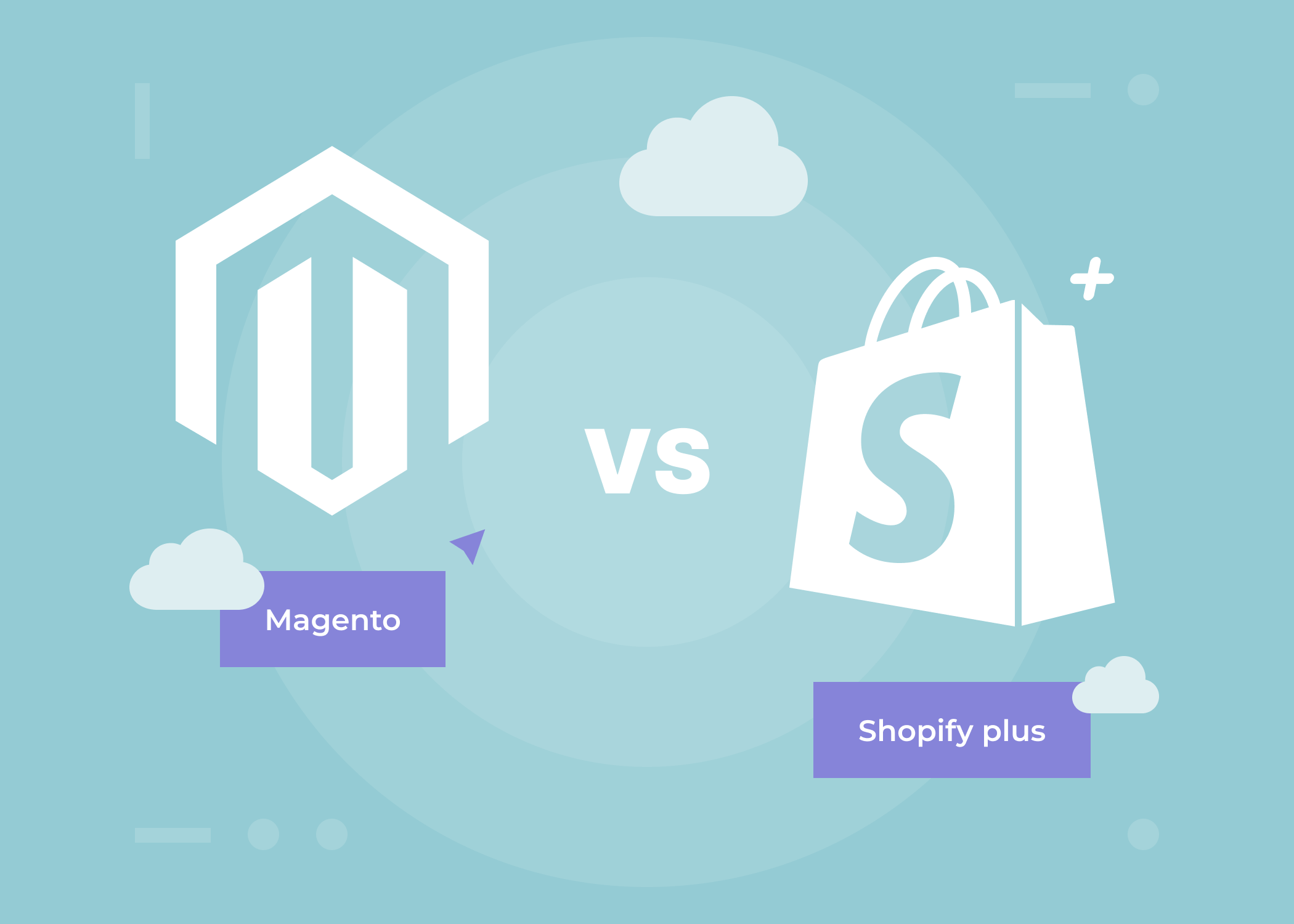
In contrast, Magento Enterprise Cloud offers a robust library of extensions and integrations through the Magento Marketplace. This includes over 4,500 extensions and themes that can be used to customize and enhance your online store. While Magento Enterprise Cloud may offer fewer options compared to Shopify Plus, these extensions are typically more customizable and provide greater flexibility in terms of functionality.
Both platforms offer a wide range of extensions and apps, but Shopify Plus has a larger app store with more off-the-shelf integrations and user-friendly apps. Magento Enterprise Cloud, on the other hand, offers a more customizable and flexible set of extensions and integrations for businesses that require more advanced features and functionality.
SEO
Shopify Plus and Magento Enterprise Cloud are both popular eCommerce platforms that offer SEO capabilities to help online businesses improve their search engine rankings and drive traffic to their websites.
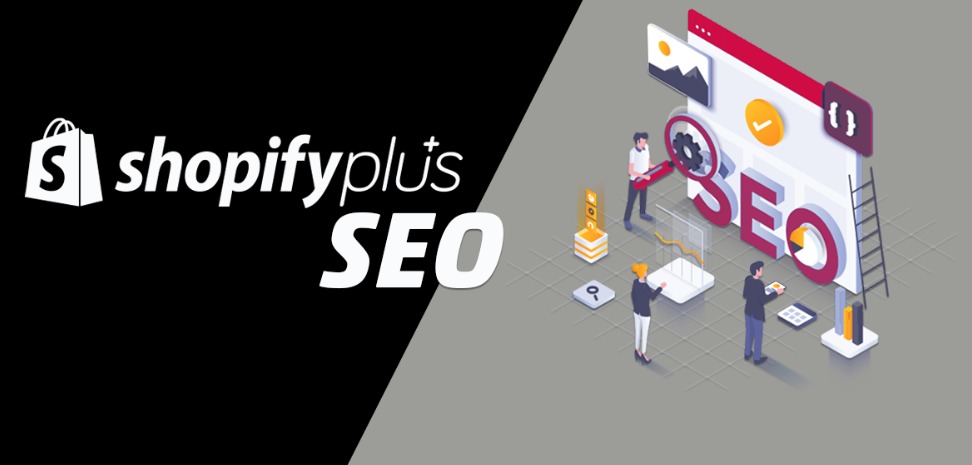
Here are some key factors to compare SEO between these two platforms:
- Technical SEO: Both platforms offer robust technical SEO features such as customizable URL structures, XML sitemaps, and meta tags. However, Magento Enterprise Cloud is known for providing more advanced technical SEO capabilities, such as server-side rendering, which can improve website speed and performance, and boost search engine rankings.
- Content Management: Both platforms offer content management systems that allow businesses to create and publish content such as blogs, landing pages, and product descriptions. However, Shopify Plus has a more intuitive and user-friendly CMS, which can make it easier for businesses to optimize their content for SEO.
- Mobile Optimization: Mobile optimization is critical for SEO, as Google now prioritizes mobile-friendly websites in search results. Both platforms offer mobile-responsive design templates and optimized checkout processes, but Shopify Plus has a more mobile-first approach, which can help businesses improve their search engine rankings on mobile devices.
Both Shopify Plus and Magento Commerce Cloud offer strong SEO capabilities, but the choice between the two will depend on the specific needs of the business. If advanced technical SEO features are a priority, Magento Enterprise Cloud may be the better choice. However, if ease of use and a wide selection of SEO apps are important, Shopify Plus may be the better option.
Support & Help
Shopify Plus offers a comprehensive support system that can save businesses money on development costs. With access to a dedicated merchant success manager and 24/7 support from Shopify Plus experts, businesses can get help with technical issues, marketing, and conversion rate optimization without incurring additional fees. Support is available through various channels such as phone, email, and live chat.
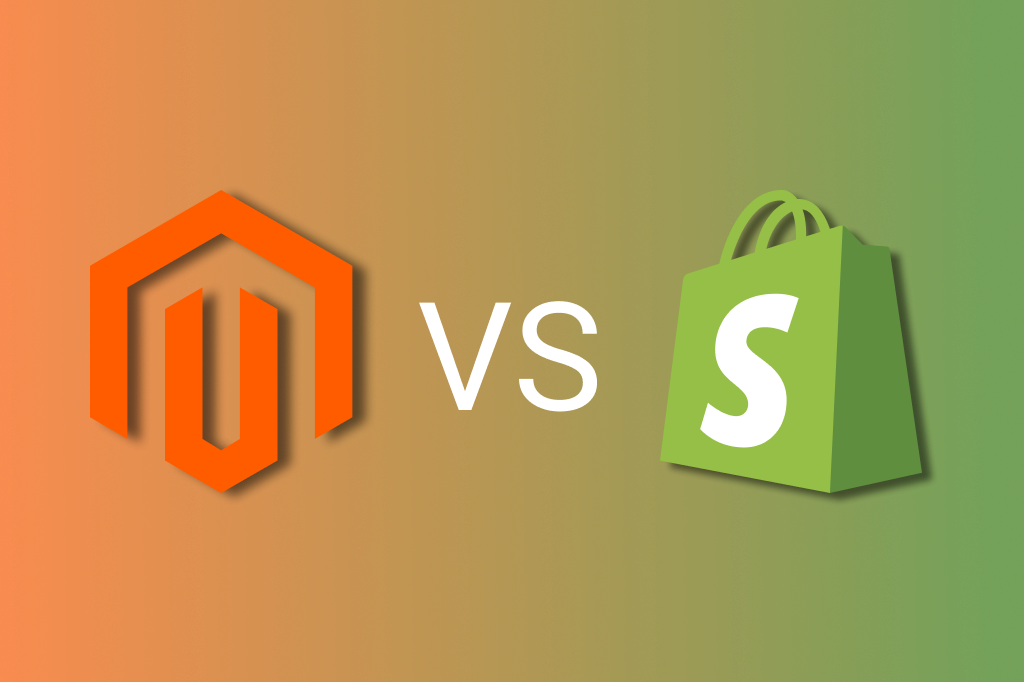
Magento Enterprise Cloud also provides support to its users, including a dedicated account manager, phone and email support, and access to a community forum. This cloud-based edition also offers training and certification programs for businesses looking to develop their skills and knowledge of the platform.
When comparing the support services of Shopify Plus vs Magento Enterprise Cloud, both platforms provide robust support and help options to their users. Shopify Plus offers 24/7 support with personalized assistance and a knowledge base, while Magento Commerce Cloud provides a dedicated account manager and training programs. Therefore, the choice between these platforms may depend on the specific needs and preferences of your business.
Pricing
When it comes to pricing, Shopify Plus vs Magento Enterprise Cloud differs significantly in their pricing models and cost structures.
Shopify Plus operates on a subscription-based model, with pricing starting at $2,000/month for basic features and services. Additional costs may be incurred for extra features, transactions, and integrations. However, Shopify Plus provides a clear and transparent pricing structure, allowing businesses to easily estimate their monthly costs and avoid surprise fees.
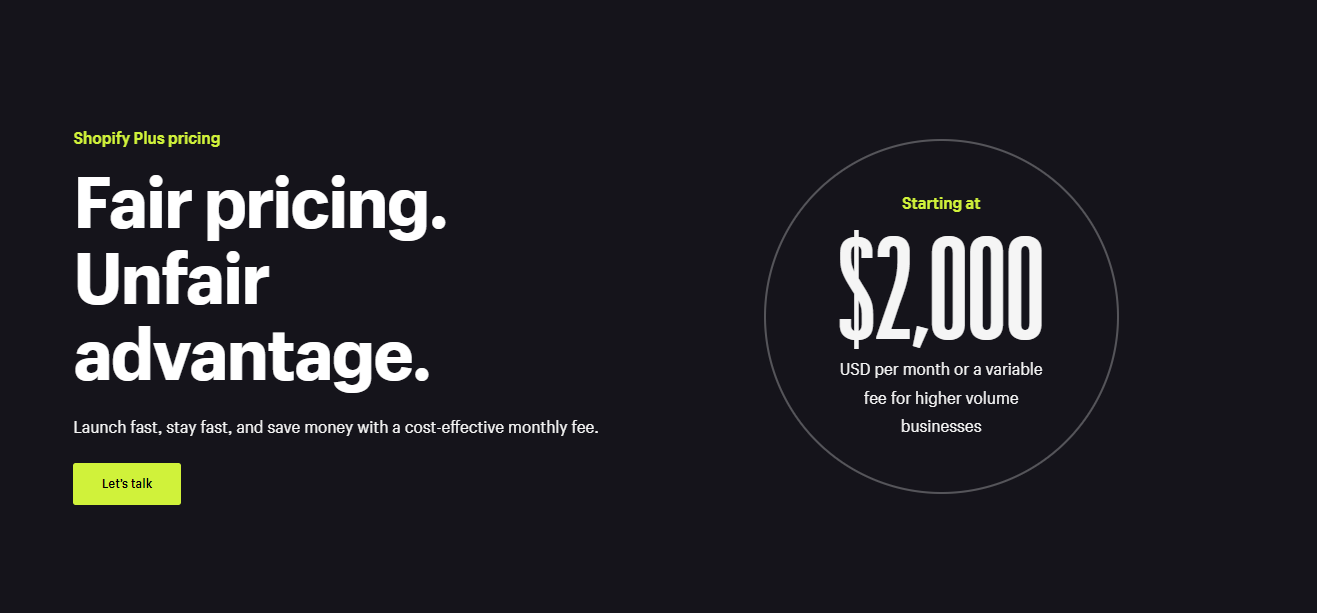
In contrast, Magento Commerce Cloud does not have a fixed pricing model, and pricing is determined by gross sales revenue. This can make it difficult for businesses to estimate their costs and may result in unexpected expenses. However, Magento Enterprise Cloud does offer a range of pricing options and customization, allowing businesses to choose the services they need and tailor their pricing accordingly.
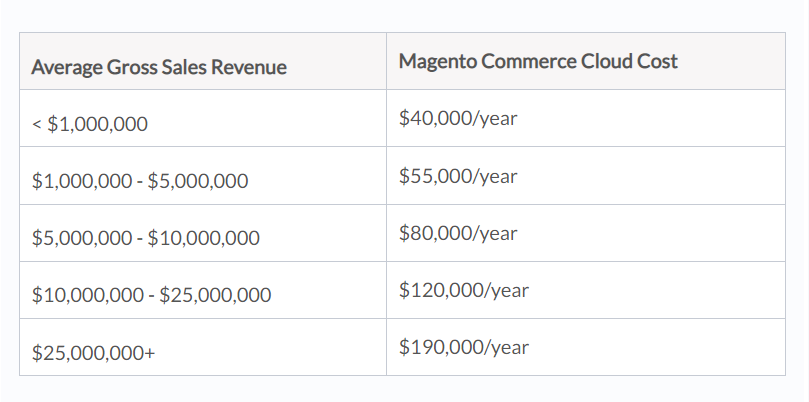
While Shopify Plus has a clear and transparent pricing structure, Magento Enterprise Cloud offers more customization and flexibility in pricing. The choice between these platforms may ultimately depend on the specific needs and budget of your business.
Shopify Plus and Magento Enterprise Cloud: Which One is Right for Your Business?
Choosing the right eCommerce platform can have a significant impact on the success of your business. While both Shopify Plus and Magento Commerce Cloud offer powerful and feature-rich solutions for businesses of all sizes, each platform has its own strengths and weaknesses. So, which one is right for your business?
Choose Shopify Plus if
If you’re looking for a platform that is easy to use and offers robust built-in features, Shopify Plus may be the best choice for you. The platform is known for its user-friendliness, and its built-in features and add-ons make it easy to scale your business. Additionally, Shopify Plus offers a comprehensive support system that can save businesses money on development costs.

Magento Commerce Cloud will likely be more expensive than Shopify Plus due to higher rates and additional hours required for integrators, as well as higher fees associated with the platform, especially for high-volume merchants. In other words, Shopify’s pricing plans are generally more affordable than Magento Enterprise Cloud, making it a more cost-effective choice for businesses on a budget. Therefore, when it comes to pricing, Shopify Plus has a clear and transparent pricing structure while Magento Enterprise Cloud offers more customization and flexibility in pricing.
Shopify’s App Store offers a wide range of third-party apps and integrations that can help businesses expand their functionality and capabilities. Magento also has a similar marketplace, but Shopify’s App Store tends to have more options and a stronger community of developers.
If you think your business goes well with Shopify Plus, have a look at how Magenest can help you thrive with Shopify.
Choose Magento Enterprise Cloud if
If you require greater flexibility and customization, Magento Enterprise Cloud may be the better option. With its open-source architecture, the eCommerce solution offers virtually unlimited customization options, making it ideal for businesses with complex needs. Additionally, Magento Enterprise Cloud offers powerful tools for managing large product catalogs and can handle unlimited product variants.
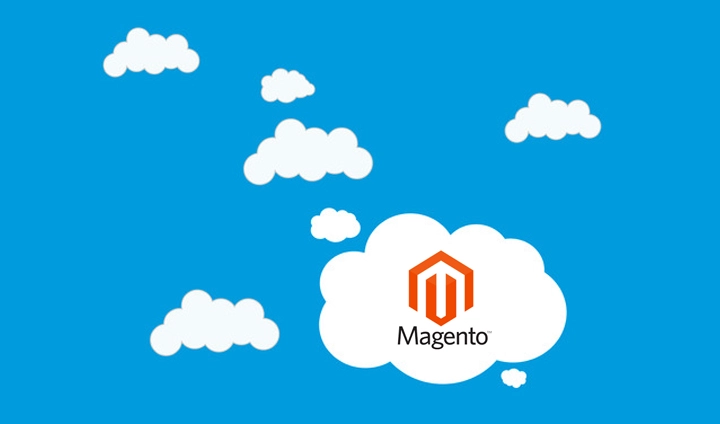
Therefore, merchants with intricate needs, especially those with large and complicated catalogs and multi-store setups, may find that the inherent flexibility and scalability of Magento make it a safer choice.
If you need advanced merchandising and marketing capabilities, Magento Enterprise Cloud is a great option. The platform offers a range of advanced merchandising and marketing features, including visual merchandising, rule-based product relations, customer segmentation, and advanced analytics. These features can help you optimize your product offerings, increase sales, and improve customer engagement.
If you think Magento Enterprise Cloud works and matches your business, our certified Magento team is only one message away from you.
In conclusion,
Both Shopify Plus and Magento Enterprise Cloud are powerful eCommerce platforms that can cater to the needs of businesses of different sizes and requirements. While Shopify Plus is known for its user-friendliness and ease of use, Magento Enterprise Cloud offers more flexibility and scalability. Each platform has its unique features and advantages, and businesses should carefully evaluate their needs before making a decision.
When deciding between Shopify Plus vs Magento Enterprise Cloud, businesses should consider factors such as budget, product catalog size, customization needs, support, and security. If your business operates a relatively simple store with straightforward requirements, you should consider Shopify Plus. However, If your store has more complicated needs, such as B2B requirements or if you prefer an on-premise platform, you should choose Magento Commerce Cloud.
Regardless of which platform a business chooses, it is essential to choose a reliable and experienced partner for implementation and ongoing support. If you are looking for an eCommerce partner to build and grow their online presence successfully, Magenest is an excellent choice with many years of experience deploying and developing eCommerce solutions such as Shopify and Magento.






